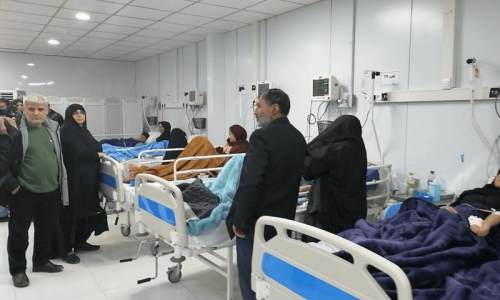TEHRAN: Dozens of schoolgirls were poisoned on Saturday in several schools across Iran, local media reported, in continuation of the mysterious phenomenon that has shaken the country for months.
Since late November many schools, mostly for girls, have been affected by sudden poisoning incidents from gases or toxic substances, in some cases causing fainting and hospitalisation among the students.
At least “60 students were poisoned in a girls’ school in the town of Haftkel” in the oil-rich southwestern province of Khuzestan, state television’s IRIB news agency cited a local official as saying.
A number of schoolgirls were poisoned in “five schools in Ardabil in the northwest”, where the victims showed symptoms of “anxiety, shortness of breath and headaches”, a provincial medical official told the news agency.
In the northwestern town of Urmia, capital of West Azerbaijan province, “a number of schoolgirls were taken to hospital on Saturday after feeling sick”, ILNA news agency reported without further elaboration.
According to an official count provided on March 7, “more than 5,000 students” have been affected by similar poisonings in more than 230 establishments, located in 25 of the country’s 31 provinces.
On Friday, MP Hamidreza Kazemi, the head of the national fact-finding committee formed to investigate these cases, specified that “the final report” would be published “in two weeks”.
Separately, in an attempt to further rein in increasing numbers of women defying the compulsory dress code, Iranian authorities are installing cameras in public places and thoroughfares to identify and penalise unveiled women, the police announced on Saturday.
After they have been identified, violators will receive warning text messages as to the consequences, police said in a statement. The move is aimed at preventing resistance against the hijab law, said the statement, adding that such resistance tarnishes the country’s spiritual image and spreads insecurity.
Published in Dawn, April 9th, 2023













































Dear visitor, the comments section is undergoing an overhaul and will return soon.